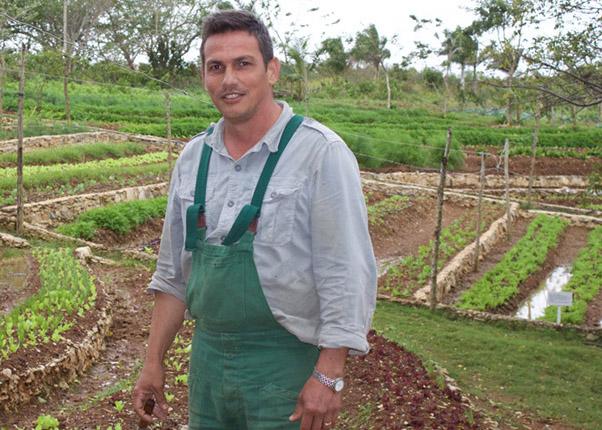Surviving Storms in the Weather System

As I began to write this, the United States had just seen the largest day of protests in its history. The Women’s March in Washington drew thousands to peacefully speak out about a wide range of issues—from health care and reproductive rights, to rampant misogyny and implicit racism, climate change, immigration reform, and the very integrity (or lack thereof) of our political system. This hopeful, ephemeral event was reinforced by demonstrations of support from huge communities of citizens all around the world. Let’s not forget that in the days ahead.
By the time you read this, however, we can expect that much will be in turmoil—that our new president and his billionaire appointees will have initiated chaotic upheaval as promised: “so fast your head will spin.”
As Editor Dave Gutknecht put it our last issue, welcome to the “new abnormal.” As he writes in this one, “The best approach to its many battles may be to focus on the ones with broadest impact and appeal—such as defending civil liberties, supporting social programs, and resisting conversion of common wealth to private profit.” Those sound like good common goals to me.
Shortly before the inauguration, both Dave and I were able to attend a sustainable agriculture roundtable event at the Wedge Table in Minneapolis. Organized by the Minnesota Cuba Committee, the event featured Cuban farmer Dr. Fernando Funes Monzote, visiting with his wife, Claudia Alvarez-Finca Marta.
Representing Cuba at its particular crossroads, Dr. Funes Monzote was introduced to members of Minnesota urban and rural agricultural projects: Community Table Cooperative, Project Sweetie Pie, U of M Extension and Urban Research and Outreach–Engagement Center, Hmong American Farming Association, Main Street Project, Stone’s Throw Urban Farm, and other food system advocates, policy makers, and practitioners. Our common concern: the grand challenges of food safety, access, innovation, and justice.
Funes Monzote is an agro-ecologist working in Cuba to reshape the way the food system works—not just there, but wherever small-scale farmers labor. His ultimate goal is to encourage the design and adoption of more ecologically sound farming systems, drawing on the collective knowledge of farmers working in particular environments. How do they adapt to climate change by making choices according to short-term and site-specific weather patterns? How do they effectively pass along their suggestions and experience? How do they scale their efforts and energies? And what does it mean to be or become a farmer?
“You can’t have support for farmers,” said Funes Monzote, “if you don’t have farmers.”
Reflecting on this roundtable later, I couldn’t help but see an analogy to what we are doing within our network of cooperative grocers. How do we withstand the future storms that are likely to rock our internal weather systems, whether in the shape of increased competition or internal disagreement? How do we draw upon our knowledge of particular local environments to continuously work in the direction of the grand challenges?
One answer was right there in the example of this event. As our group met in the Wedge Table community room, customers elsewhere in the store ate their meals, shopped for groceries, and conversed over coffee with friends. During the course of an average day, in the middle of lunch hour, without a lot of fanfare, the co-op provided a dedicated space for community conversation and connection. As it does every day. As so many of our stores do in one way or another. They preserve and protect the social capital around which we sustain and learn from one another.
Food co-ops bring value to their communities whenever they encourage these kinds of gatherings. As Fernando Funes Monzote puts it when he talks with farmers: “We don’t belong to the cooperative, The cooperative belongs to us.” Co-ops encourage us to take agency, pool our common knowledge, and make a difference in the practical areas that affect our lives. That’s our legacy and what we intend to preserve and carry forward. ♦
Resources on Cuba and Sustainable Agriculture
“Agriculture is a passion,” says Fernando Funes Monzote. “There’s no better way to achieve this transformation than to get involved on a practical level.”
The Cuban organic agriculture movement is of strong interest to members of the international community who are looking for sustainable approaches to agriculture.
Various resources are available online, including a PBS News Hour presentation, “What Cuba can teach America about organic farming.”
Funes Monzote’s visit to Minnesota was also hosted and recorded by Dorsey and Whitney law firm. A pdf of the seminar, “Sustainable Agriculture and Food Production in a Changing Cuba,” is available to download on the Internet and archived at grocer.coop, the CGN website.
Find, “To Be Happy, to Achieve Solidarity: The Roots of the New Cuban Co-op Revolution,” by Gail Graham and Rebecca Torpie (Sept.–Oct. 2015), in the archive of Cooperative Grocer articles at grocer.coop.
Books on the subject include:
Farming Cuba: Urban Agriculture from the Ground Up, by Carey Clouse (2014).
Unfinished Puzzle: Cuban Agriculture: The Challenges, Lessons & Opportunities, by May Ling Chan (2013).
Sustainable Agriculture and Resistance, by Fernando Funes Monzote, Luis Garcia, Martin Borque, Nilda Perez, and Peter Rosset (2002).
Photo: Raquel Perez Diaz
Initiatives, such as that of Funes and his organic farm, show that organic farming is possible in Cuba. Havana Times







